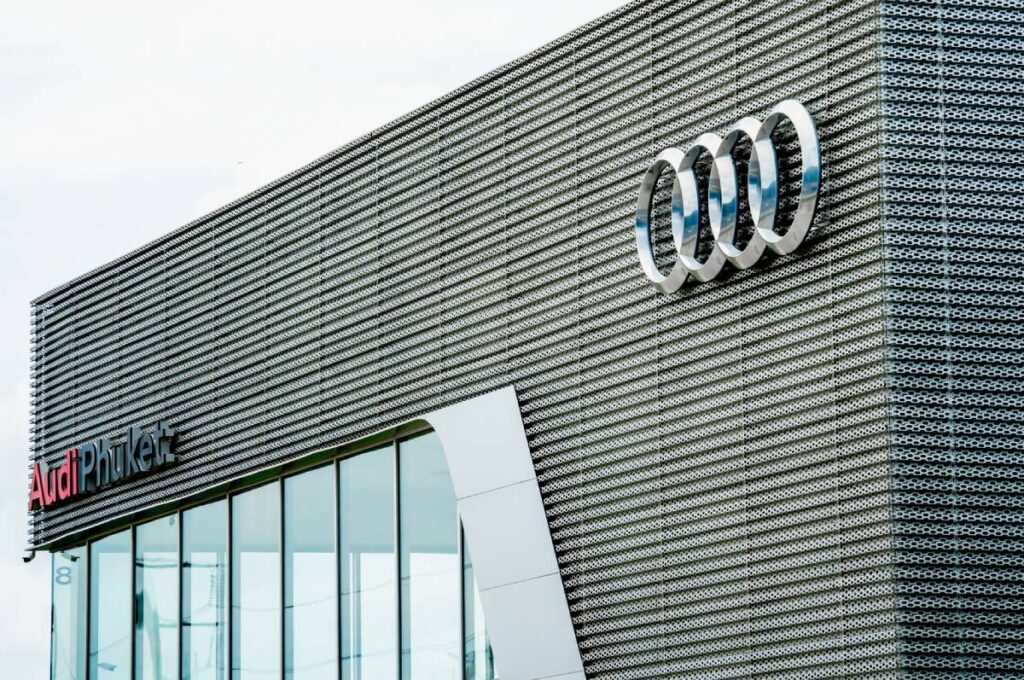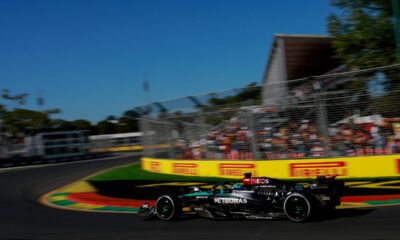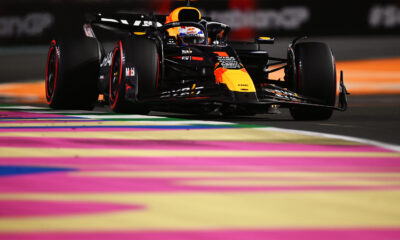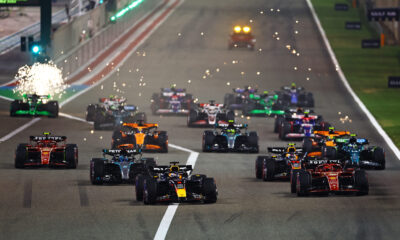Motorsport
Audi is experiencing a crisis in top management! Is this putting the German carmaker’s entry into F1 in 2026 at risk?
We have completed the tests in Bahrain, where the teams tested the new cars for the upcoming season. While most fans’ eyes were on Asia, things were boiling over in neighbouring Germany. Audi, which wants to enter F1 next year, is facing another crisis. And its future in the queen of motorsport is in doubt.

We have completed the tests in Bahrain, where the teams tested the new cars for the upcoming season. While most fans’ eyes were on Asia, things were boiling over in neighbouring Germany. Audi, which wants to enter F1 next year, is facing another crisis. And its future in the queen of motorsport is in doubt.
Audi and its entry into F1
It’s no secret that the “queen of motorsport” is not only growing as a sport, but also as a marketing brand. The Netflix hit Drive to Survive has played a significant part in this.
Of course, the growing value of the championship benefits everyone involved, including the teams. And those on the outside are looking for ways to get involved. That’s why Audi officially announced on Friday ahead of the 2022 Belgian Grand Prix that it will enter F1 for the 2026 season.
This season was chosen deliberately. After all, the ‘ef firsts’ are facing significant rule changes next year. There will be brand new engines, new synthetic fuels and a major overhaul of the hybrid powertrain design. So all the stables will be on the same starting line, and that’s exactly what Audi wanted to take advantage of.
For its own purposes, the Ingolstadt-based brand has gradually begun to buy out a majority stake in Peter Sauber’s team. For the last five years, he had been racing under the Alfa Romeo name. After the Italians withdrew from F1 at the end of last year, the Swiss stable enters this season as Stake F1 Team Kick Sauber.
Staff reshuffle
Like all major road car manufacturers, Audi saw its prospects in electrification. The trouble was that belief in an electric future alone was not enough and the carmaker was unable to offer customers a competitive car in this area. In addition, it began to lose performance in the key market of China. A country that has completely dominated the electric car market in recent years.
As expected, the owners of Volkswagen (to which Audi belongs) have pulled the brake to save the day. Herbert Diess, a big fan of electromobility and also CEO of VW, was replaced by the current CEO of Porsche, Oliver Blume, at the beginning of September 2022.
The fifty-five-year-old executive then dismissed Audi CEO Markus Duesmann in his new role for a change at the end of last June. He was replaced by VW’s leading strategist Gernot Döllner.
And it is from this moment that the problems of the Ingolstadt carmaker date back. Döllner, unlike his predecessor, is not a strong supporter of Audi’s entry into F1 and is rather reserved about the whole project.
Current disputes
Although Audi’s management has changed, some members of the “old guard” have remained. In particular, the company’s technical director Oliver Hoffmann. The German engineer took up the post in 2021, and was tasked with accelerating the automaker’s electrification efforts.
Now Döllner blames him for blocking development and is looking for a way to get rid of him. According to German media, the 47-year-old Hoffmann wants to “calm down” the new F1 team, but former McLaren boss Andreas Seidl is in charge of the project. And adding another level of decision-making will not benefit the new stable.
Audi’s future in F1
There is thus the option of Seidl being “retired” from the team. In that case, a place at Red Bull is on offer. Christian Horner is currently facing charges of “inappropriate behaviour” and his stay at the Austrian stable is in the stars.
However, the possibility of Audi eventually cancelling its F1 project cannot be ruled out either. In fact, it is struggling to recruit top staff to Hinwil, where it is based. Moreover, there are constant questions about whether the investment needed to compete with the best is being made fast enough.
At the moment, Audi is still not a 100% owner of Sauber, which is why speculation is growing that Döllner would be willing to sell shares in the Swiss team. The timing couldn’t be better. FOM recently denied entry to Michael Andretti and there are more than enough interested parties for a place in F1. A suitable investor would thus allow Audi to get out of this situation without financial and, in part, marketing damage.
Source: Autosport, Bild












